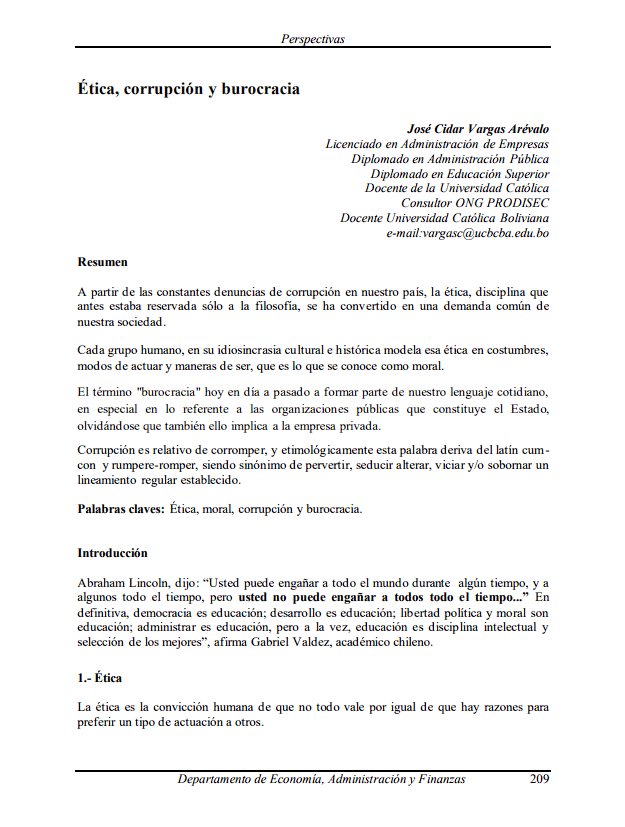Ethics, corruption, and bureaucracy
DOI:
https://doi.org/10.35319/e9xe4f53Keywords:
Ethics, morality, corruption, bureaucracyAbstract
Due to the constant reports of corruption in our country, ethics—a discipline once reserved only for philosophy—has become a common demand of our society.
Each human group, in its cultural and historical idiosyncrasy, shapes ethics into customs, ways of acting, and ways of being, which is what is known as morality.
The term "bureaucracy" has now become part of our everyday language, especially in reference to public organizations that make up the State, forgetting that it also applies to private enterprises.
Corruption relates to the act of corrupting, and etymologically, the word derives from the Latin cum–with and rumpere–to break, being synonymous with perverting, seducing, altering, spoiling, and/or bribing a regular established guideline.
Downloads
References
OLIAS DE LIMA, Blanca (2001), La nueva gestión publica, Madrid-España, Pearson Educación.
TAMAYO SAEZ, Manuel (2003), El análisis de las políticas públicas, Universidad Complutense de Madrid, Instituto Universitario Ortiga y Gasset.

Downloads
Published
Issue
Section
License
Copyright (c) 2009 Revista Perspectivas

This work is licensed under a Creative Commons Attribution-NonCommercial-ShareAlike 4.0 International License.
La Revista Perspectivas de la Universidad Católica Boliviana, es una revista de acceso abierto, por lo tanto, es de libre acceso en su integridad. Está permitida su lectura, búsqueda, descarga, distribución y reutilización legal en cualquier tipo de soporte únicamente para fines no comerciales, siempre y cuando la obra sea debidamente citada.




